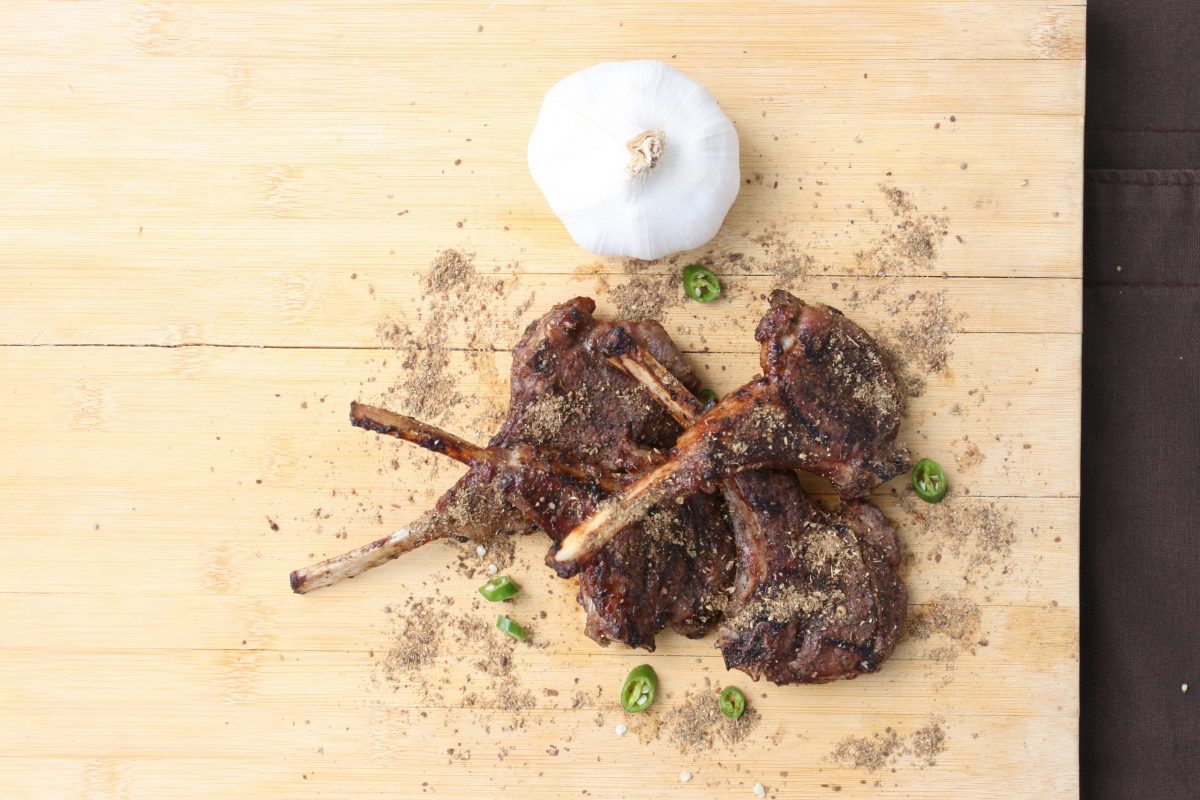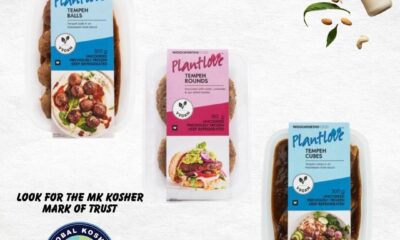
Featured Item

The mystery of (high) kosher meat prices
Published
3 years agoon
By
Jordan MosheThe cost of kosher meat continues to rise, and in spite of assertions that they can’t be compared with the non-kosher industry, butchers within the Johannesburg Jewish community won’t account for their own costs and those charged to consumers.
Amidst the recent calls for greater clarity on kashrut from within the community, the subject of kosher meat prices was raised as a pressing issue that needs to be addressed.
The webinar held by the SA Jewish Report in October marked a turning point in kashrut transparency, with Chief Rabbi Dr Warren Goldstein, the Union of Orthodox Synagogues, (UOS), and the kosher department responding to questions about kashrut in our community.
Among these was the high cost of kosher meat and chicken. It was disclosed that the UOS didn’t make a profit from shechita (kosher slaughter), and that the annual revenue generated from kosher-food services such as butcheries and abattoirs is R7.7 million and the expenses R7.8 million.
Moreover, the costs incurred for the shechita process divided by the number of units slaughtered was said to be between R4.30 and R4.60 per kilogram depending on whether it was beef or chicken. The chief rabbi said that the shechita fee made up a small percentage of the overall cost, and the UOS had nothing further to do with the price.
“It’s a free market, so prices are set by the butcheries,” Goldstein said. “The price of meat and chicken isn’t set by the UOS. If anyone feels they can bring prices down through the free market, it can certainly be done.”
Against this background, the SA Jewish Report undertook to account for the cost of kosher meat and understand the factors which have, for years, driven the price up.
Starting at source, the aim was to engage with kosher butchers and determine what their costs were and how they were calculated into the price charged to consumers.
However, both Maxi Discount Kosher Butchery and Moishes (the only exclusively kosher butcheries in the community) declined numerous opportunities to engage on the subject. They wouldn’t be drawn into accounting for the prices at which they buy their meat from abattoirs, the costs they incur by operating within the kosher industry, and the prices they charge.
Inquiries among mashgichim, shochtim and other stakeholders proved equally fruitless, with people either unable or unwilling to share any information which could help the community better understand the price of kosher meat.
The SA Jewish Report then undertook a comparative exercise of its own, comparing prices of lean mince, brisket, lamb chops, and whole chicken across the three primary retail outlets of kosher meat: Maxi, Moishes, and Pick n Pay at Norwood Hypermarket.
Because a comparison with entry-level non-kosher meat would be impossible, the prices for non-kosher were taken from the regular Pick n Pay butchery (PnP), the closest equivalent available. Pick n Pay proved consistently cheaper than the two kosher butcheries in all of its kosher prices, and the mark-ups at Moishes and Maxis were sizeable.
A non-kosher chicken (fresh and whole) sells at R54.99 per kilogram at PnP. Its kosher line’s equivalent chicken (fresh and whole) sells at R82.99 per kilogram, leaving a difference of R23.70. A non-kosher pack of fresh skinless chicken breast fillets sells at R74.99 per kilogram at PnP, while the nearest kosher equivalent in stock, fresh chicken schnitzel pieces, sells at R214.99 per kilogram, a difference of R140.
If the cited schita fee is deducted, it leaves a mark-up of R23.70 and R135.70 respectively on these products alone. Prices at Moishes were even greater, and Maxis proved consistently the most expensive across all the products assessed.
The only retailer who commented and gave some degree of clarity was Pick n Pay.
“Our kosher customers can always expect the best quality and value from Pick n Pay,” said a spokesperson. “The price of kosher meat will always reflect the cost price of the product, which includes the cost of kosher slaughter, the kashering process, processing, packaging, and other costs required.”
Although they could not speak directly to the prices, the UOS kashrut department also provided some input regarding kosher meat prices in general.
“As mentioned during the SA Jewish Report webinar, the costs incurred due to the shechita process are approximately R4.50 per kilogram for beef and chicken,” said Rav Dovi Goldstein, who heads up the kosher desk at the UOS.
“This cost goes to providing our services of slaughterers, rabbinic checkers, knife checkers, mashgichim for stamping and tongues [in the case of beef], mashgichim for de-veining/salting [in the case of chicken], and managing and monitoring the overall system.”
Goldstein said there were other costs incurred by the abattoirs and retailers themselves, and though he couldn’t comment on them, he could assert that all costs would be increased due to the low volumes consumed relative to non-kosher meat and chicken products.
“Approximately 500 000 kosher chickens are slaughtered a year, whereas the major non-kosher chicken farms slaughter this amount in two days,” he said. “In addition, there are parts of the animal which may not be consumed according to halacha, which also effectively inflates the price per kilo of the rest of the animal.”
“Whilst we haven’t done a retail comparison with overseas markets, it’s well known that the cost of kosher exceeds non-kosher by a significant margin in all countries internationally.”
A source within the slaughtering industry who asked to remain anonymous said that kosher slaughter was a much slower, more expensive process, and most abattoirs preferred not to do it.
“They end up with less than 25% of the whole carcass, and have to sell the hind quarter at a loss to the treif market,” he said.
He said that although he supplies some cattle to the abattoirs (which in turn supply the kosher market), he chooses not to get involved in the kosher market because of its expenses.
“To put cattle in a box to slaughter costs a couple thousand rand, something more affordable for players in a large non-kosher market with bigger volumes,” he said. “Many larger abattoirs also slaughter halaal on a large scale and don’t slaughter kosher. Kosher forequarters are therefore far more expensive.”
It’s difficult to compare prices between the butcheries because of volumes, he stressed, pointing out that non-kosher butcheries have bigger abattoirs slaughtering for them exclusively, and their large volumes don’t go towards the kosher market.
He did acknowledge, however, that the price of kosher meat is high, has been a problem for the past 40 years, and is turning more people away from kosher food because they can’t afford it.
A person involved in Jewish charity work within the community, who also asked to remain anonymous, agreed with this statement.
“The cost of meat has escalated to the point that families consider meat and chicken as an occasional treat for Shabbos,” he said. “Inasmuch as keeping kosher has been important for many who have done so for many years, some people have sadly had to sacrifice kashrut for treif because of the unaffordability of kosher meat.
“There must be a way of reviewing costing in an attempt to bring the prices down which will, in turn, enable more people to replace a starch diet with a more balanced and healthy one.”
| PnP Non Kosher | PnP Kosher | Moishes | Maxis | |
| Lean Mince | 99.99 | 114.99 | 125 | 158 |
| Chicken Whole | 54.99 (fresh) | 82.99 (fresh) | 89.95 (frozen)105 (fresh) | 106 |
| Lamb Chops | 194.99 | 192.99 | 245 | 298 |
| Brisket | 94.99 | 134.99 | 195 | 360 |
Prices in rand per kilo











gerald dytch
Mar 23, 2021 at 5:10 pm
more and more jews are turning to non kosher sometimes non kosher is 2thirds cheaper than koshermeats and chickens just a rip off